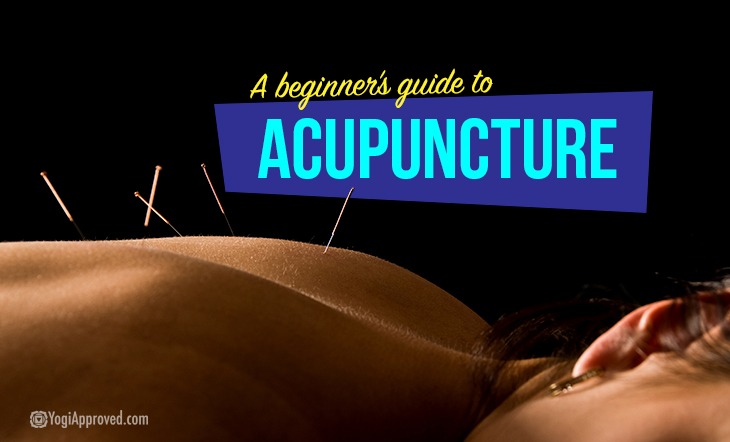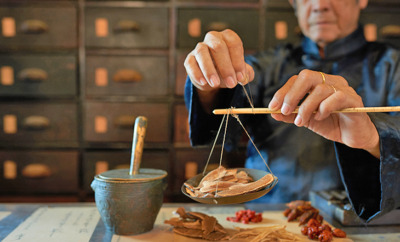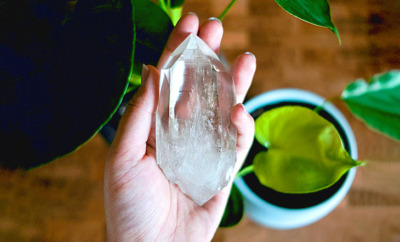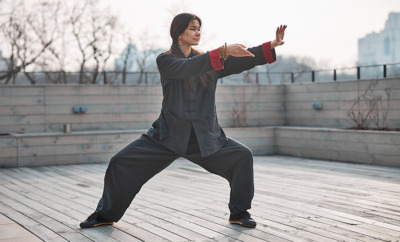A Beginner’s Guide to Acupuncture

Ever wondered what exactly acupuncture is and how those tiny needles work so well to treat a myriad of health conditions? Acupuncture may seem mysterious at first, but its vast array of benefits are certainly worth spending the time to learn a bit more about this form of Traditional Chinese Medicine.
Let’s break it down so we understand how acupuncture works and how we can begin to reap the amazing therapeutic benefits it has to offer. Acupuncture truly is beneficial for everyone!
What Is Acupuncture?
Acupuncture is one branch of Traditional Chinese Medicine (TCM) that involves the strategic placement of tiny, stainless steel, sterile/single-use needles into specific points on the body.
These points are known as acupuncture points and are located along the 12 main meridians/pathways that correspond with different organ systems. The meridians are classified into yin meridians and yang meridians according to the yin or yang organs with which they are connected.
Where Did Acupuncture Originate?
Acupuncture originated in China as far back as 2,500 years ago. It then spread throughout Korea, Japan, Europe and ultimately the rest of the world. The earliest documentation that refers to acupuncture procedures is The Yellow Emperor’s Classic of Internal Medicine, dating from about 100 BCE.
What Did the Ancients Use for Acupuncture Treatment?
In ancient times, sharpened stones and bones were used for acupuncture treatment instead of needles. These instruments were also used for simple surgical procedures like lancing an abscess. As times changed and the medicine evolved, they began to use bronze, gold and silver and eventually stainless steel needles like the ones that are used today.
Some practitioners still use golden needles today!
What Are the Physiological Effects of Acupuncture?
- Promotes blood flow
- Releases neurotransmitters and endorphins, the body’s natural painkillers (thought to be some 200 times more potent than morphine!)
- Stimulates nerve fibers, which results in nerve impulses being sent to the spinal cord
- Stimulates the release of serotonin which has antidepressant effects on the brain
- Stimulates the release of adrenocorticotropic hormone (ACTH), which activates the adrenal gland to release cortisol into the bloodstream. Cortisol is a naturally occurring steroid substance that has anti-inflammatory properties
- Reduces inflammation
- Reduces stress
- Relaxes shortened/contracted muscles
- Restores homeostasis in the body
Is Acupuncture a Form of Therapy?
Yes! Although, as amazing as acupuncture is, it is not magic. Depending on the severity of a condition and whether it is chronic or acute, the course of treatment varies. The more chronic a condition, the longer it may take to treat; conversely, if a condition is acute it may only require one or two sessions.
Typically, to fully reap the benefits, acupuncture is used as a therapy to strengthen different systems of the body and it is important to not discontinue treatment too early. There are a lot of factors that play into the health of the body, such as lifestyle, diet, exercise, thought patterns, etc. These factors take time to allow the body’s rebalance to sustain and get used to the healthy state of being.
Acupuncture is like playing a sport or an instrument – the more you practice, the better you become. The more acupuncture addresses imbalances in the body, the healthier and more stable the body becomes.
Who Can Benefit From Acupuncture?
Everyone: children, pro-athletes, pregnant women, the elderly, the weak, the strong and the in-between. Acupuncture can be used preventatively as well as an excellent form of medicine to treat disease.
5 Holistic Ways to Strengthen Your Lungs, According to Traditional Chinese Medicine
What Conditions Does Acupuncture Treat?
According to the World Health Organization (WHO), the following symptoms, diseases and conditions have been shown through controlled trials to be treated effectively by acupuncture:
- Low back pain
- Neck pain
- Sciatica
- Tennis elbow
- Sprains
- Headache
- Dental pain
- Temporomandibular (TMJ) dysfunction
- Rheumatoid arthritis
- Induction of labor
- Correction of malposition of fetus (breech presentation)
- Morning sickness
- Nausea and vomiting
- Postoperative pain
- Stroke
- Adverse reactions to radiation or chemotherapy
- Allergic rhinitis, including hay fever
- Depression (including depressive neurosis and depression following stroke)
- Acute and chronic gastritis
The Vast Array of Benefits of Acupuncture
The physiological explanation of acupuncture satisfies many western minds while the poetry of the Daoist philosophical principles satisfies others. The beauty is when you combine the two and begin to realize how this natural form of healing can be implemented into your own life.
Ready to know more? Check out Qi, Meridians, Yin & Yang: An In-Depth Look at Acupuncture
This article and all included information is not intended as medical advice and does not treat or diagnose. Please consult your doctor for any health-related questions or concerns.


This Month's Letter
From the Editor
Monthly motivation and food for
thought from our founder.


























